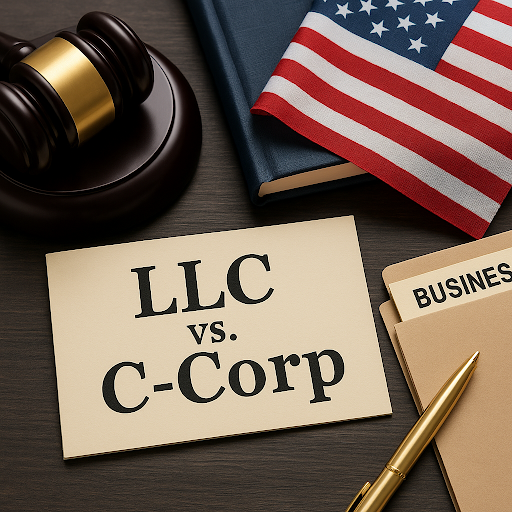
US UK Business Law Advisors
Staying on the Right Side of the US Federal Trade Commission’s (FTC) Endorsement Guides
As more UK businesses expand into the U.S. market or partner with American influencers and agencies, understanding U.S. advertising regulations is no longer optional. The U.S. Federal Trade Commission (FTC) updated its Endorsement Guides in March 2025, clarifying how businesses must handle advertising, social media endorsements, and consumer reviews. For businesses operating internationally, compliance is essential not only for avoiding penalties but for protecting your reputation in one of the world’s most competitive markets.
What Are the FTC Endorsement Guides?
The FTC Endorsement Guides are a set of rules and best practices that help ensure advertising claims—especially those made via endorsements or testimonials—are honest, transparent, and non-deceptive. These rules apply to any U.S.-facing advertising content, including those produced by companies based outside the United States. That means UK businesses using American influencers, targeting U.S. consumers, or selling via U.S.-based platforms need to pay close attention.
Key Principles for Businesses to Understand
Material Connections Must Be Disclosed
Any relationship between a business and an endorser that could influence consumer perception must be disclosed clearly and conspicuously. This includes financial ties, employment, family relationships, or the provision of free products or services.
Endorsements Must Be Honest and Accurate
Endorsements must reflect the genuine opinion and experience of the endorser. Companies cannot cherry-pick or script endorsements in ways that distort the truth.
Don’t Mislead with Atypical Results
If an ad features a consumer whose results are not typical, it must disclose what most consumers can actually expect. Phrases like “results may vary” are no longer sufficient.
Avoid Manipulating Reviews
It is now explicitly against the rules to suppress, boost, reorder, or selectively present online reviews in a way that misleads consumers.
Social Media Requires Real-Time Transparency
For endorsements on platforms like Instagram or TikTok, disclosures must appear early in the post and be easy for the average consumer to understand. Hashtags like #ad should not be buried or hidden.
Risks for Non-Compliance
Failure to follow the FTC’s guidelines can result in:
- Financial penalties
- Injunctions or cease-and-desist orders
- Damaged brand reputation
- Investigations into related business activities
With regulators increasingly targeting cross-border practices, UK businesses can no longer assume they’re out of reach of U.S. enforcement.
What Does This Mean for Businesses – Not Just Marketers?
These rules don’t just apply to marketing teams or influencers. They affect:
- CEOs and founders who approve product launches or brand collaborations
- Legal and compliance officers responsible for company risk
- E-commerce managers listing on U.S. marketplaces
- Sales teams running promotions or referral campaigns
Whether you’re launching a product in the U.S., signing an affiliate deal, or promoting software through partnerships, these rules impact how your company must communicate with U.S. consumers.
New Areas of Focus in 2025
The March 2025 update places additional emphasis on emerging technologies and the expanding influence landscape:
- AI and Virtual Influencers: If you use AI-generated content that mimics human endorsement, you still need to disclose that the endorsement isn’t from a real person.
- Influencer Agreements: Businesses are encouraged to create contracts with influencers that require FTC-compliant disclosures and to monitor compliance over time.
- Platform Accountability: Companies must take responsibility for the platforms they use. Claiming ignorance is no defence if you benefit from misleading advertising.
How Abrams Law Can Help
AtAbrams Law, we advise UK and EU businesses on U.S. regulatory compliance, helping clients navigate complex issues like FTC advertising law, data privacy, and cross-border contracts. Our dual-qualified team of UK solicitors andU.S. attorneys helps businesses stay compliant while expanding into American markets.
Whether you’re engaging U.S. influencers, launching a U.S. ad campaign, or reviewing your customer review policies, we can:
- Draft compliant influencer and commercial agreements
- Review marketing language and claims
- Advise on risk mitigation and policy creation
- Represent you in FTC-related matters if needed
Don’t Wait for an FTC Complaint to Take Action
The cost of non-compliance is rising—and so is regulatory scrutiny. Get your cross-border advertising and endorsement strategy reviewed by legal professionals who understand both sides of the Atlantic.
Contact Details:
📧Email: info@abrams.law
📞Phone: +44 208 004 7016
🌐Website: www.abrams.law
Share
Do you need legal help? Get in touch now!
We'll get back to you within 1 business day.
Jonathan’s practice focuses on representing UK, US and international clients in corporate transactions and private commercial matters, including Mergers and Acquisitions, corporate finance, joint ventures, recapitalizations and venture capital investments.


